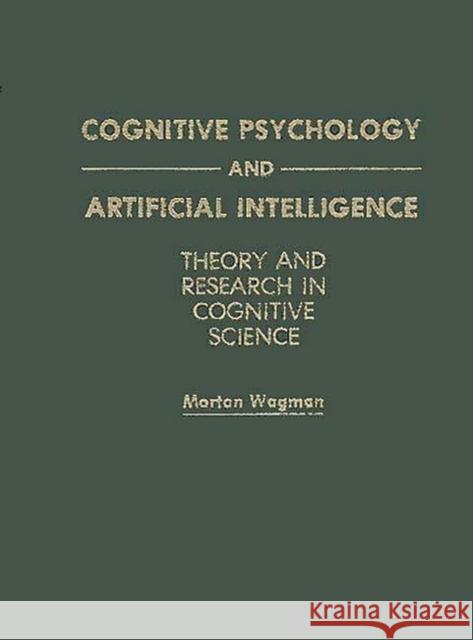Cognitive Psychology and Artificial Intelligence: Theory and Research in Cognitive Science » książka
Cognitive Psychology and Artificial Intelligence: Theory and Research in Cognitive Science
ISBN-13: 9780275943028 / Angielski / Twarda / 1993 / 192 str.
The nature of cognition is examined by the methods of experimental cognitive psychology and the theoretical models of computational psychology. First explained is the nature and objectives of artificial intelligence, symbolic and connectionist paradigms, the architecture of cognition, and characteristics of a general theory of intelligence. Wagman then examines theory and research in human reasoning and reasoning systems. Experimental research in deductive and inductive reasoning, the nature of artificial intelligence reasoning systems, nonmonotonic and common-sense reasoning, and general types of reasoning in artificial intelligence are examined. Next the author examines the nature of human problem solving and problem-solving systems. Problem representation methods and their duplication by artificial intelligence is discussed at length. Concepts and research in human learning and learning systems are also reviewed, as are the nature of human expertise and expert systems.
Major characteristics of expertise including deep knowledge, reasoning strategies, and pattern recognition are described and exemplified in research concerned with medical expertise. The nature of intelligence and intelligence systems is examined, and the physical symbol system hypothesis and its results are analyzed. The author covers an artificial intelligence system that emulates the cognitive processes in scientific discovery and its implications for human creativity.











